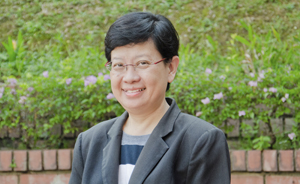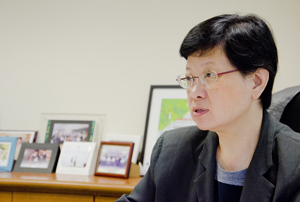Young Children’s Voices in Mathematical Problem Solving
Contributed by Dr Ho Siew Yin and Sng Wei Qin Abbie, from NTUC First Campus, for SingTeach Virtual […]
Read More
Inspiring learning and shaping lives. This sounds like a tall order, but it actually describes what a teacher does in class every day. The Teachers’ Conference 2014 focused on how teachers can become a positive influence in their students’ lives.

Every teacher plays different roles: a mentor, facilitator, administrator, subject expert and counsellor, among others. Now, we can add to that list “character coach” as well.
“As teachers, we need to understand that we are in a very privileged position, where we are accessible to many children,” says Mrs Chua Yen Ching, Executive Director of the Academy of Singapore Teachers (AST).
“No other profession is in this privileged position of touching and shaping lives.”
The theme for this year’s Teachers’ Conference is Values across the Curriculum: Inspiring Learning, Shaping Lives.
The biannual conference was organized by AST and it focused on how teachers can nurture students who are active contributors with sound character and a strong sense of belonging to Singapore.
Another strand explored was how teachers could cultivate values and a passion for lifelong learning across subject disciplines.
Mrs Chua said that teachers are often regarded by students as significant adults.
“Especially for students who do not come from very supportive families, teachers may be their only role models,” says Mrs Chua.
Students often observe how their teachers and significant others manage dilemmas in their lives, and this subsequently shapes the way they approach problems. If our actions and beliefs are not congruent, our students may get confused.
“You find that it is from such day-to-day experiences that many of our students ‘catch’ some of these values, and we want them to catch it from us!”
But to be a character coach, one has to do more than just being a role model. It is about seizing the teachable moments – and planning for them too. This means actively guiding students to develop certain values and social competencies.
“For example, winning is very important for students when they play sports and games, but it cannot be winning at all costs,” Mrs Chua comments.
“Even though the students pay a lot of attention to the product or end result, we can remind them that the journey is equally important. When you win, you can win fairly and with humility – don’t be too proud! And when you lose, you can lose with dignity and learn from the experience.”
No other profession is in this privileged position of touching and shaping lives.
– Mrs Chua Yen Ching, Executive Director of the Academy of Singapore Teachers
At the conference, Mrs Chua noticed participants generally agreed that when it comes to character and values education, and 21st century competencies, not everything can be measured.”If it is important, even if we cannot measure it, we still need to teach it.”
This is so, especially when the future that awaits our students is so unpredictable and complex.
“If one day, our students were to come to us and say, ‘I don’t know how to walk the journey from 18 to 80 years old’, we would have done them a disservice and we would have failed as an educator.”

The Teachers’ Conference saw overseas participants for the first time this year. To facilitate more wide-ranging discussions on character building and values education, the organizing committee also invited speakers and panellists from different fields, including public service, medicine and social service. “This collective wisdom is very important and the learning is mutual,” says Mrs Chua.
Indeed, what was discussed at the conference resonated with many teachers – questions from the floor came fast and furious during various sessions.
“I was quite impressed that there were so many questions asked!” Mrs Chua comments. She was also touched that such a large number of teachers sacrificed the first 2 days of their school vacation for professional learning. In fact, the event was oversubscribed and Mrs Chua thanked her colleagues at AST for their hard work because “running a conference for 2,500 participants is really not easy”.
She hopes that teachers had taken away from the conference ideas and strategies that will help them to enhance their teaching. This will in turn lead to quality learning for every child. It is also a good time to take time to reflect on how they can inspire learning and shape lives.
Mrs Chua quoted from a book by keynote speaker Professor Marvin W. Berkowitz at the closing of the conference: “A teacher can fundamentally alter the course of the lives of their students. We’re in such a powerful position that to our students, we can be the difference between a life of misery, and a productive, fulfilling life.
“We can be the single factor that protects them from pitfalls that otherwise await them. Teachers leave their marks on children every day.”
Useful Resources
The opening address by Mr Heng Swee Keat for the Teachers’ Conference 2014 can be accessed via the MOE website: https://www.moe.gov.sg/media/speeches/2014/06/03/address-by-mr-heng-swee-keat-at-the-7th-teachers-conference.php
Berkowitz, M. W. (2012). You can’t teach through a rat and other epiphanies for educators. Boone, NC: Character Development Group.